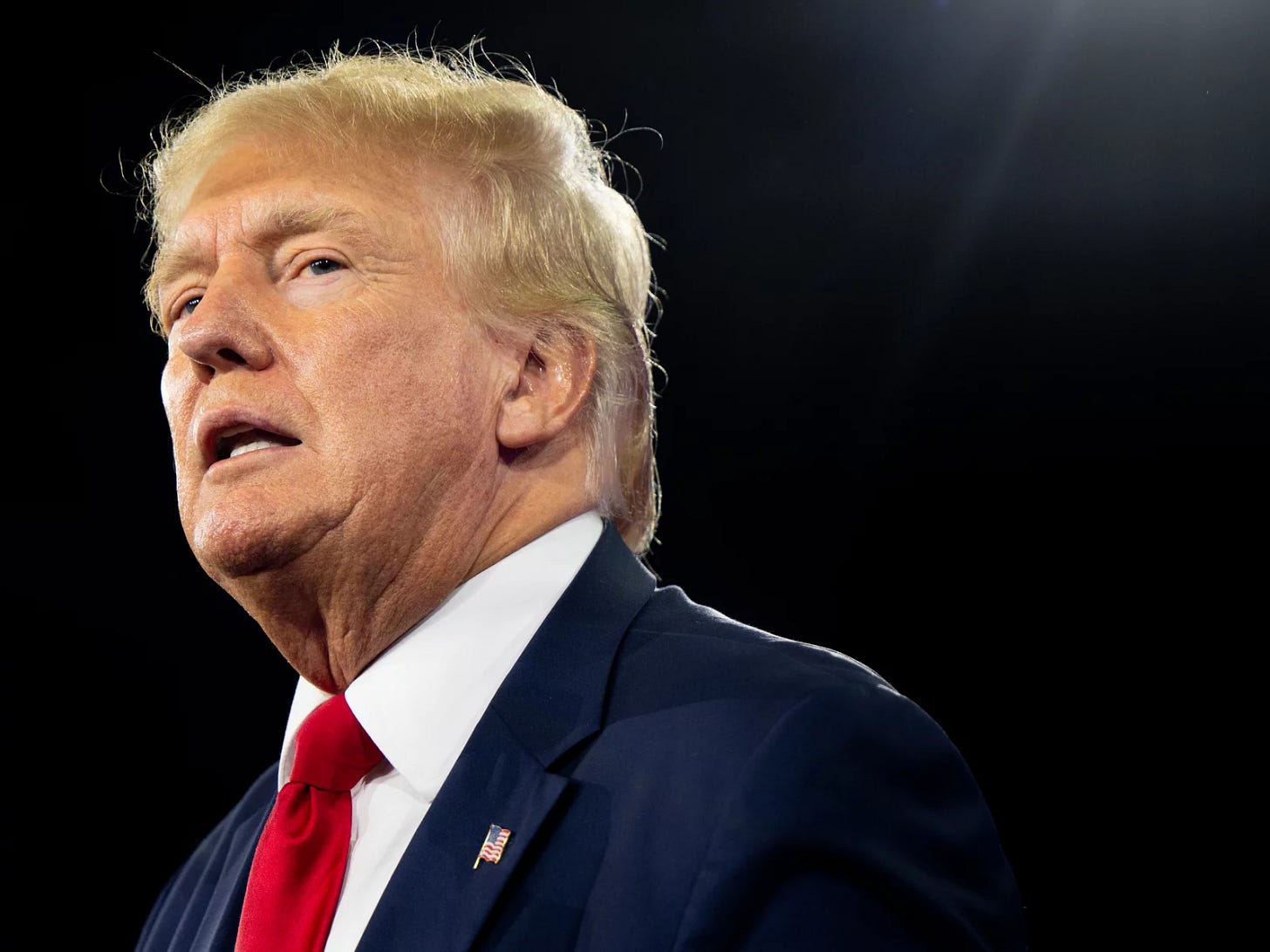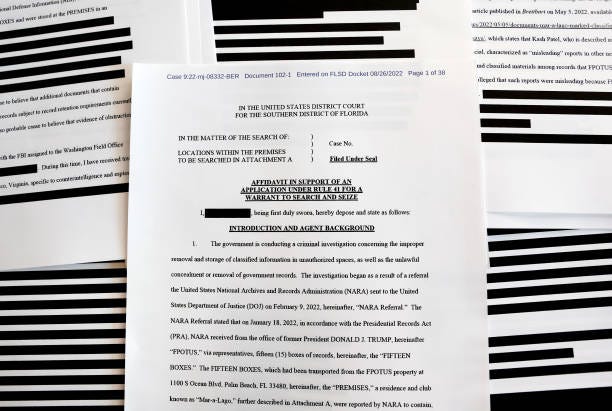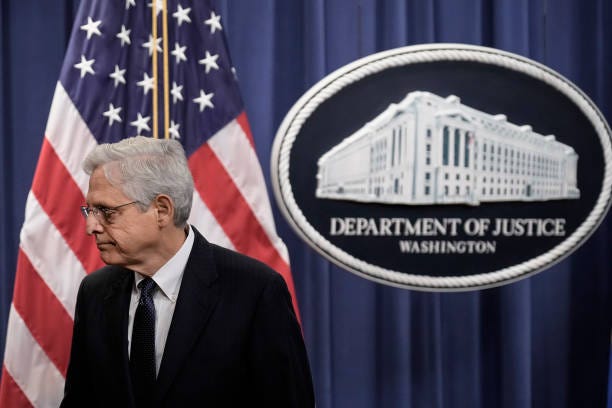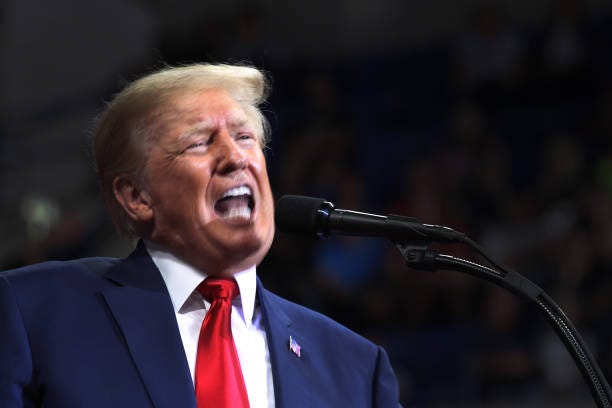What Does this Court Win for Trump Mean?
On the Labor Holiday, Federal District Judge Aileen Cannon ruled that a Special Master must be appointed to review the documents taken from Mar-a-Lago by the DOJ.

US District Judge Aileen Cannon made a point to grant Trump’s request on Labor Day, and will appoint an independent Special Master to review materials the FBI seized from his Mar-a-Lago residence last month. Judge Cannon dismissed ardent objections from the Department of Justice (DOJ), which argued that appointing a special master would halt the ongoing investigation of Trump for a claim of executive privilege that no longer exists since Trump has left office.
In her Monday ruling, the judge blocked prosecutors from further reviewing or using the seized documents in their investigation until the special master that has been appointed completes their review of the confiscated materials. Cannon has also instructed DOJ and Trump attorneys to submit a joint filing by Friday that includes a proposed special master candidate list.
The FBI’s search of Trump’s Mar-a-Lago residence on Aug. 8 came as part of a federal investigation into whether Trump violated the Espionage Act in addition to two other statutes. Law enforcement agents recovered 33 boxes containing more than 100 classified records.
A newly released inventory list from Sept. 2 also revealed that agents had seized 48 folders bearing classified banners, but contained nothing inside them. Considering the lack of a definitive explanation for what was originally in these folders and where the missing contents are, the ongoing investigation by the DOJ was at a critical stage before it was halted.
Why Does This Matter Now?
“With respect to the Government’s ongoing criminal investigation, the Court does not find that a temporary special master review under the present circumstances would cause undue delay,” Cannon wrote in her ruling. While many legal experts could successfully argue that this is clearly untrue and that the ruling is completely unjustified, the next steps will involve the DOJ appealing the ruling.

The DOJ initially argued that Trump lacked standing to request a Special Master because his presidential records were owned by the government, not by Trump himself. The judge dismissed this objection by finding that although Trump may not have ownership of many of the materials, “genuine disputes” exist as to whether others constituted personal records.
While the judge is not stating that Trump is actually entitled to executive privilege protections over the documents that were seized, her ruling results in an obvious attempt to delay the criminal investigation against Trump, while a third party sorts through the documents to tell us what we already know: there is no privilege. The DOJ now has the option to appeal the ruling, but an appeal has several resulting ramifications that may not be advantageous to the government’s investigation.
Will the DOJ Appeal the Ruling?
Appealing this latest order which appoints a Special Master to review thousands of files may actually create more of a delay in the process, considering that the possible outcome at the appellate level carries with it an air of uncertainty. On the other hand, not pursuing an appeal for what appears to be such a biased ruling that favors former President Trump sets a terrible precedent.

Trump appointed six judges to the 11th Circuit Court of Appeals, a conservative jurisdiction that is now lousy with his cronies — this is the first stop for any appeal. The DOJ is weighing the following options: is it worth it to spend more time and effort for an appeal, ensuring more delay, to potentially get the ruling overturned in their favor? Or would it be more expeditious to proceed with the process of a Special Master, who should in all likelihood find that none of the documents taken from Trump will be granted privileged status?
Either way, this will all likely shake out in a manner that favors the DOJ. The bottom line for government legal officials is to decide what the most expeditious path will be so that the agency is legally able to resume the investigation. The DOJ is now considering which option gets them back to work in the quickest amount of time.
Who is Judge Cannon?
Aileen Cannon, a former federal prosecutor who was an assistant United States Attorney for the Southern District of Florida, was only 39 when Trump appointed her to a lifetime appointment. Among Judge Cannon’s conservative credentials, is her longtime membership in the Federalist Society, an organization that serves as a launching point for aspiring conservative jurists.
The sheer number of Federalist Society jurists, appointed by Donald Trump, is the reason the country has recently seen the roll-back of civil rights protections by every federal court, including the US Supreme Court.
Judge Cannon indicated last week that she was preparing to rule in Trump’s favor on this case, and the details surrounding her nomination and confirmation, along with the outrageousness of this legal conclusion, further solidifies the idea that Cannon is in Trump’s pocket.
Did Judge Cannon say Trump had Executive Privilege?

Judge Cannon did not expressly rule on the issue of whether any of the government documents taken from Trump’s possession were entitled to executive privilege protections. Instead, she found that a temporary Special Master appointment to review whether or not any documents are privileged would not cause undue delay “under the present circumstances.”
In addition to his request for a Special Master, Donald Trump also asked that Judge Cannon order the return of the seized property back to Mar-a-Lago. In her Monday ruling, Cannon declined to rule on this issue at this time.“Plaintiff [Trump] ultimately may not be entitled to return of much of the seized property or to prevail on his anticipated claims of privilege” Cannon continued, “That inquiry remains for another day.”
What is a Special Master?
A Special Master is meant to be an impartial party, that assists the judge in overseeing the details involved in a case, where there is a lot to review and judges have limited judicial resources and time. This method also helps to preserve the appearance of integrity and bi-partiality, as the judge usually chooses a person from a list where both sides involved have approved of the person being appointed.
The person appointed is not always an attorney, depending on the issue at hand and the need for a specialized representative. In this case, the Special Master will likely be someone who is an attorney or who is very educated in the issues of Constitutional Law and Executive Privilege. The most difficult task in this process is to find someone who is actually neutral, not just purporting to be.
This person will need to look at all the facts and evidence, including the arguments made by both parties to apply the law to the facts and derive a result that aligns with what the judge has specifically asked them to review. The Special Master appointed in this case will review all of the documents that were recovered to see if executive privilege applies to any of them. Spoiler alert: it doesn't.
What Happens Now?

Ultimately, this ruling creates a delay in the ongoing investigation by the DOJ into Trump’s possible criminal activities. Considering that we are just a few months out from another huge election, where Democrats and Republicans are both desperately vying for control of Congress, this latest halt works in Republicans’ favor to keep negative press about Trump away from the electorate…for now.
The investigation will ultimately continue. What is unknown at this time is how long it will take for the DOJ to regain legal access to the materials necessary in their criminal probe. That time frame will ultimately be decided after the DOJ chooses which legal path they will pursue, a task which Attorney General Merrick Garland is no doubt diligently assessing at this point.
If you have any other questions on this latest ruling by Judge Cannon, feel free to ask me in the comments of this post. I will do my best to respond to as many as I can so that everyone can be as informed about the process as possible. Thank you for being a SHERO reader.
Amee Vanderpool writes the SHERO Newsletter and is an attorney, published author, contributor to newspapers and magazines, and analyst for BBC radio. She can be reached at avanderpool@gmail.com or follow her on Twitter @girlsreallyrule.
Paid subscriptions and one-time tributes embedded in each article allow me to keep publishing critical and informative work that is sometimes made available to the public — thank you. If you like this piece and want to support independent journalism further, you can forward this article to others, get a paid subscription or gift subscription, or donate once, as much as you like today.




I am beyond furious about this whole debacle. It couldn't be clearer that Trump has flouted the law his entire life and there is now proof that he has done so. He should not have the opportunity to run for president. IMO, even if he does announce his run, the election is more than two years away. The DOJ needs to continue with their investigation and, ultimately, prosecute Trump.
My head just about exploded when I saw Judge Cannon's ruling, because she not only gave Trump everything he wanted (which I fully expected), she gave him MORE than he wanted.
So, let's look at the situation, which in my view is bad all the way around for those who want to see POTUS45 brought to justice. Either he gets a delay (and probably a lengthy one) in this investigation, which will almost certainly be followed by MORE delays as his lawyers file additional frivolous pleadings now that they know that they have the "right" judge deciding matters, or the government takes the matter up to the 11th DCA, which as you noted is filled with Federalist Society/Republican-approved judges. So, it's a safe bet that a judicial panel would affirm Judge Cannon. In the very unlikely event that a panel from that DCA overruled her, it's a guarantee that Trump's lawyers will appeal to the Supreme Court, which has three Trump appointees on it. Hmmmmm, wonder which way they'd go (rhetorical question). In the event that Judge Cannon's decision was affirmed, the Justice Department could then appeal to the Supreme Court but it would have to get past the "gatekeeper" Justice in charge of the 11th Circuit. Guess who's in charge of the 11th Circuit? Justice Clarence Thomas. Hmmmmm, wonder which way HE'D go--he'd either deny Cert. or might allow the question to be considered by the whole court IF he knew that he had the other five conservative Justices to back him up. Either way, we the people lose.